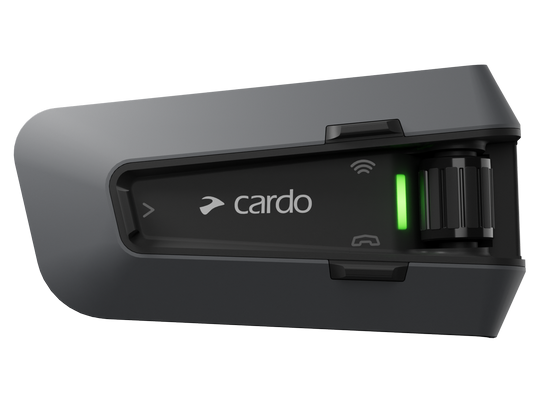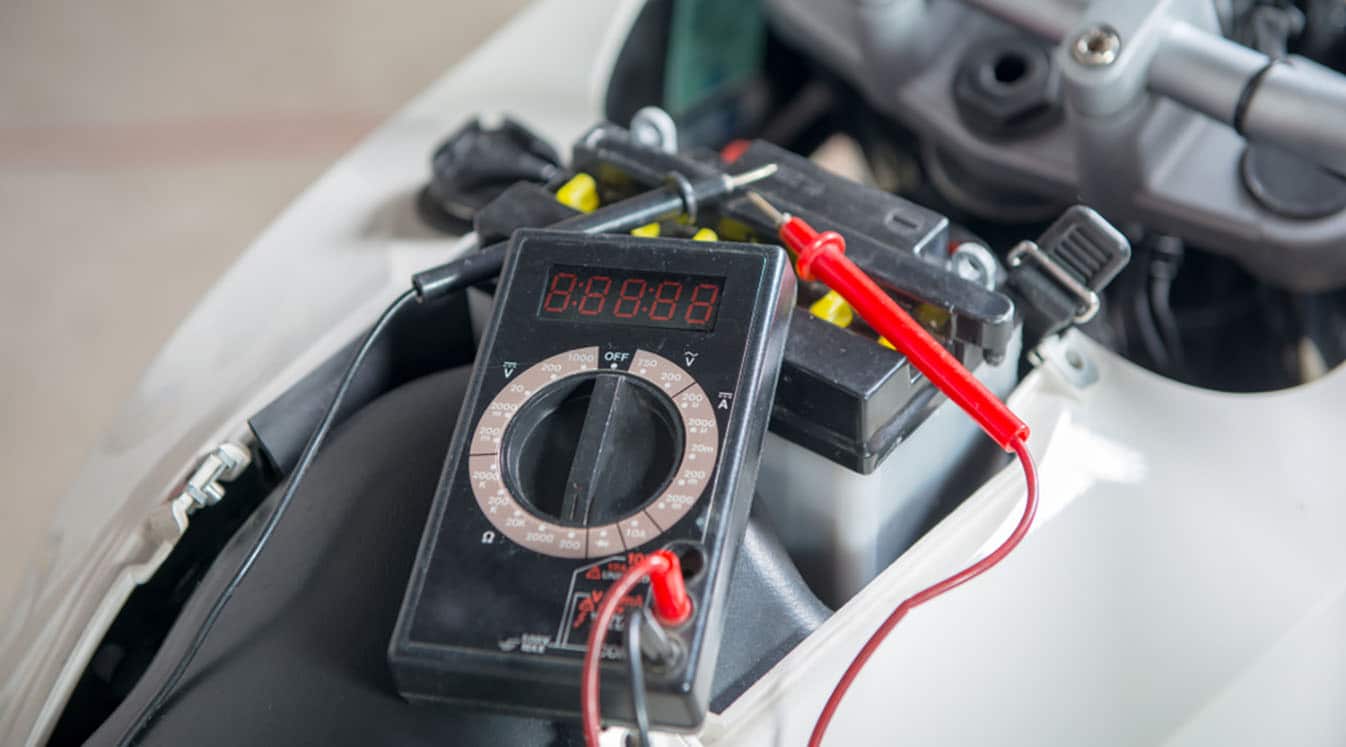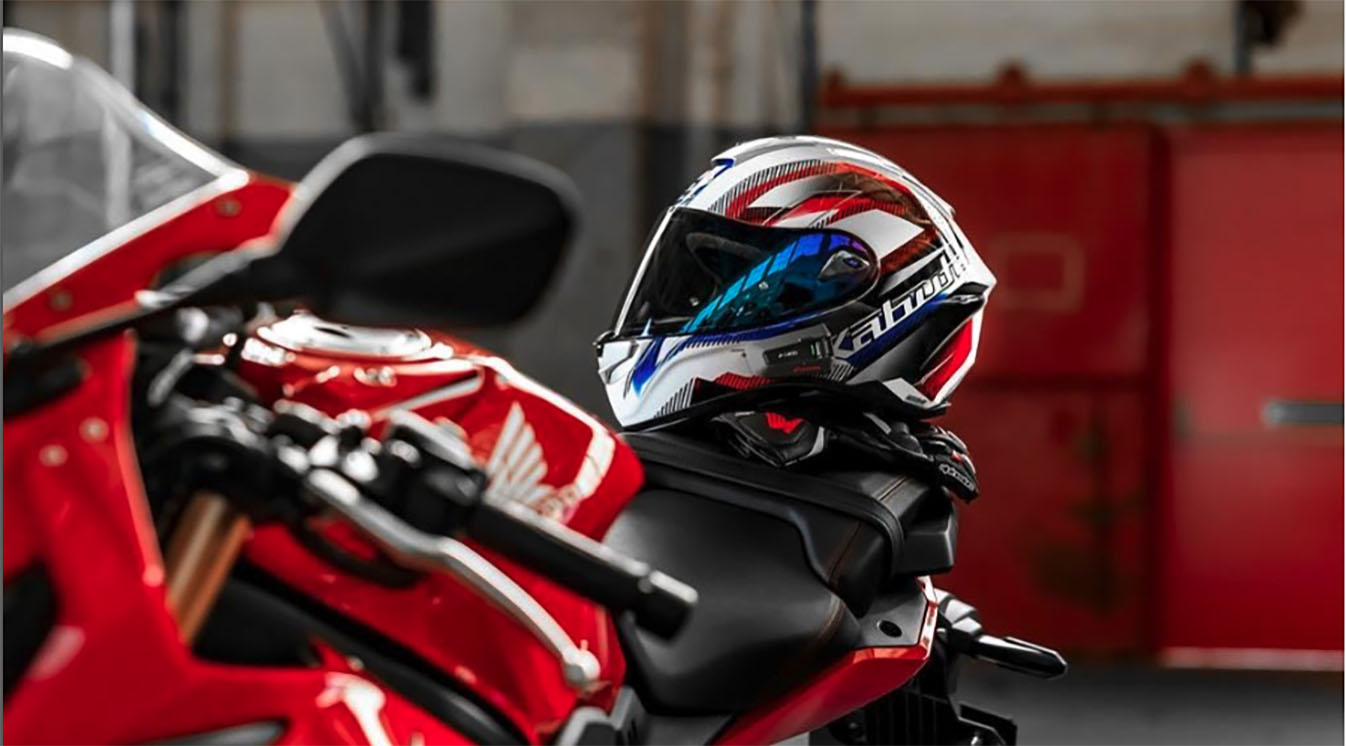A dead battery may be the result of a few weeks of neglect or leaving the key in the on position for more than a few minutes. Sometimes, it’s an electrical issue and changing or charging the battery won’t make a whit of difference.
If you know what you’re looking for, you can avoid a dead battery.
Motorcycle Batteries
More accurately called storage batteries, these indispensable parts store all the electrical power generated by your bike’s charging system, which, in turn, is powered by the bike’s engine.
Batteries convert chemical energy into electrical energy using a series of plates, or electrodes, submerged in an electrolyte. Many gasoline-fueled bikes use one of three lead-acid batteries–wet cells, gel or absorbed glass mat (AGM).
Wet Cells
Flooded batteries, or wet cells, are the oldest type of lead-acid battery, and you need to keep the electrolyte in the water at all times. If the battery goes dry, it fails, which is the most common reason wet cells stop working.
Flooded or wet cells are not sealed and can be dangerous. The electrolyte is very acidic and burns clothes, paint and skin.
Gel Cells
The introduction of gel batteries, or gel cells, was the next evolutionary step in battery technology. Gel batteries are sealed and use a thick electrolyte fluid that holds up better to the trials of riding.
These batteries have individual vents that allow only the gas to escape if it’s overcharged, keeping you and the rest of your ride dry. They require a lower charging voltage–printed on the side of each battery.
AGMs
Absorbed glass mat cells, or AGMs, are the very latest in lead-acid battery technology. They have a fiberglass-like barrier to hold the electrolyte gel and are spill-proof. They last longer than wet or gel batteries, offsetting their higher cost.
If you’re starting up your ride and hear that fateful “click-click-click,” or worse, you’re out riding in a group when your electrical system starts to flicker, these are signs that you may need to replace your motorcycle battery.
In a group, communication is key. With helmet communication systems made for riders by riders, Cardo Systems won’t let anyone be left behind.
1. Starting Problems
On modern bikes, some conditions disallow the motorcycle to start if, for example, you haven’t pulled the clutch in or the side stand isn’t up. Check to see if the key is in the ignition position. These small details can mimic more significant problems with your bike, like a dead battery.
If your engine is turning over at the appropriate speed when you twist the key, then you probably don’t have a battery problem. If, however, it’s a cranking issue, then your diagnosis is most likely a battery issue.
2. Headlights and Horn
A quick way to check is to turn your key on and look at the bike’s headlight. If the beam is dim and flickering, you probably have a battery-related issue.
Additionally, if you tap your horn and it doesn’t seem to have as much volume as it used to, or if it doesn’t make any noise, this is another indicator that your battery needs to be replaced.
3. Inconsistent Multimeter Readings
Once you’ve uncovered the terminal, you will need either a multimeter or voltmeter. Adjust to DC voltage that includes 12-volt. Most meters have a 20-volt setting, which works handily.
By touching the positive or red lead to the red terminal on the battery, and doing the same with the black, negative lead, you can deduce the voltage. Any voltage less than 11 should be charged, with the ideal level between 13 and 13.6. If you persistently get inconsistent readings, you may need to replace your battery.
4. Several Electronic Failures
It used to be that a bike didn’t need a battery to start up. A condenser and points served as an ignition system, and a kick to a lever started it up. In more modern times, bikes include all sorts of peripheral accessories that run off a battery, along with electronic ignition and a complicated lighting system.
If your bike is showing signs of failure in multiple electronic systems, it may be time for a new battery.
Communicate with Your Crew
If any or all of these signs start cropping up on a group ride, tell the rest of your group that you need to stop and take stock with a multi-person helmet communication system. One of the most crucial aspects of a successful and enjoyable group ride is clear communication pathways. To do so, you need top-of-the-line equipment.
Last Word
When you need to communicate information during a minor crisis like battery failure, you need durable Dynamic Mesh equipment that is made for riders by riders. Cardo Systems will keep the information flowing, whether it’s to check your battery, get gas or to take a break.





